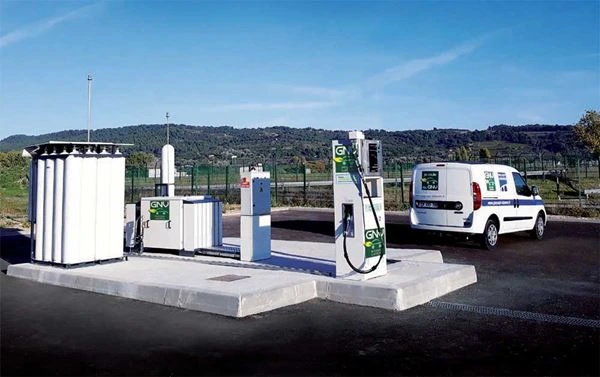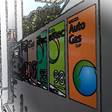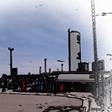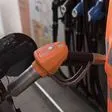
CNG Stations in France

Table of CNG Stations in France
| SUPPLIER | ADDRESS | CITY |
|---|---|---|
| V-GAS | Rue des evens | Montoir de Bretagne |
| V-GAS | Avenue du Grand Pommeraye | Saint-Thibault-des-Vignes |
| V-GAS | ZAC Delta 3, Voie du Grand Large | Dourges |
| V-GAS | Rue de l'Argentique | Chalon-sur-Saône |
| V-GAS | rue du parc Forestier | Saint Quentin Fallavier |
| V-GAS | 1327 avenue de la Houille Blanche | Chambéry |
| V-GAS | Boulevard du commerce | Puget-sur-Argens |
| V-GAS | 597 Avenue Saint Maurice | Manosque |
| V-GAS | Zi du Pont, avenue des vergers | Plan d'Orgon |
| V-GAS | Avenue Marcellin berthelot, Ecopole | Saint Martin de Crau |
| V-GAS | Aire PL 2XL Carrefour Mat de Ricca, Grand Port Maritime de Marseille | Port-Saint-Louis-du-Rhône |
| ENDESA | 43 Rue Jan Huss | SAINT ETIENNE |
| ENDESA | Route de Fief Cordelier | BONNEUIL SUR MARNE |
| ENDESA | Chemin de la Croix Brisee, ZAC du Haut de Wissous II | WISSOUS |
| ENDESA | Les Coteaux de la Touche | VARS |
| ENDESA | 1 Rue Jean Baptiste Dumaire | SARREGUEMINES |
| ENDESA | 5 Rue des Metiers | SANT VINCENT DE TYROSSE |
| ENDESA | ZA La Carrere - Route de la Cantere | SANT VINCENT DE PAUL |
| ENDESA | La Briqueterie D113 | ARON |
| GAZ UP | 870 rue des Mousquetaires | CASTETS |
| GAZ UP | Avenue Leo Lagrange | LANGON |
| GAZ UP | Avenue des 3 cardinaux Sortie 4 autoroute A630 | BORDEAUX |
| GAZ UP | 259 avenue des Etats-Unis Parc d\'activités de Fondeyre | TOULOUSE |
| GAZ UP | Rue Barthelemy Thimonier | OLEMPS |
Map of CNG Stations in France
List of CNG Stations in France
Network of CNG stations in France
Compressed Natural Gas (CNG) has become a popular and viable option as an alternative fuel in France. It is a cleaner and cheaper fuel compared to traditional fossil fuels such as gasoline and diesel, which has attracted a growing number of private consumers and transport companies. In recent years, the infrastructure of CNG stations in France has seen accelerated growth, supported by government policies and investment from private operators seeking to encourage the energy transition towards more sustainable sources.
The use of CNG in France is also aligned with the country's climate objectives, as part of its commitment to the Paris Agreement. Reducing greenhouse gas emissions and promoting greener forms of transport are priority objectives. This article provides a detailed review of the evolution of CNG stations in France, the current situation in 2024, and projects and forecasts for 2025 and beyond.
Evolution of CNG Stations in France
The history of CNG in France began in the 1990s, when the first CNG station was opened to the public. At the time, the country was just exploring the possibilities of alternative fuels, and infrastructure development was slow and challenging. For the first two decades of their introduction, CNG stations in France were limited to specific urban areas, such as Paris, and were primarily intended for public and private vehicle fleets, such as buses and delivery trucks.
As the 21st century entered, the global energy landscape began to change dramatically, driven by the need for more sustainable solutions. However, it was not until the last decade, especially after 2010, that concrete steps began to be taken to expand the CNG network. The French government began offering incentives for vehicle conversions and the construction of CNG stations, allowing the sector to begin to gain ground. Between 2010 and 2015, the number of CNG stations went from being merely symbolic to around 50 stations, mainly in urban areas.
The real growth began around 2016, when the government's commitment to sustainable mobility and emissions reduction was translated into a series of more concrete policies. Investment in infrastructure for alternative fuels such as CNG accelerated, and several private companies such as Air Liquide, ENGIE, and TotalEnergies joined the effort, seeing an opportunity in the emerging CNG market. Since 2017, France has seen a steady annual increase in the number of CNG stations, reaching more than 130 stations in 2020.
As the CNG market has continued to grow, so has confidence in this type of fuel as a viable and efficient alternative. By 2024, France has more than 250 CNG stations, with a strong presence in major cities and on the country’s busiest transport corridors. CNG infrastructure in France is now well established, with clear plans for its continued expansion.
Current Situation of CNG Stations in France (2024)
By 2024, CNG stations in France are distributed throughout the country, with a particularly high density in large cities and metropolitan areas, as well as on major transport corridors connecting the north to the south and the east to the west of the country. Regions such as Île-de-France, Auvergne-Rhône-Alpes, Provence-Alpes-Côte d'Azur and Hauts-de-France have the highest concentration of CNG stations, providing easy access to users who rely on this alternative fuel.
The cities of Paris, Lyon, Marseille, Toulouse and Lille are the main centres of CNG infrastructure development. Paris, in particular, has seen an increase in the number of CNG stations due to its focus on sustainable mobility and the implementation of low-emission zones. CNG-powered vehicles enjoy certain tax benefits and circulation advantages compared to traditional fuel vehicles. Other cities, such as Nantes, Strasbourg, and Bordeaux, have also expanded their network of stations in recent years.
The push for CNG stations in France has also benefited from private sector involvement. Companies such as Air Liquide, ENGIE, and TotalEnergies have invested significantly in building and operating CNG stations across the country. Each of these companies has specific strategies for expanding their presence in the CNG market, focusing on key locations that maximize access and convenience for consumers. For example, Air Liquide has a strong presence in the north and east of France, ENGIE has focused on the south, and TotalEnergies has taken a more national approach.
In addition, the Agency for Environment and Energy Management (ADEME) and the Ministry of Ecological Transition have been active in promoting CNG as a viable option to reduce transport emissions, providing financing for new projects and collaborating with local and regional actors to develop the necessary infrastructure.
CNG Stations Opening Projects and Forecasts for 2025
Looking ahead, the growth of CNG Stations in France is far from slowing down. The number of CNG stations across the country is expected to continue to rise steadily through 2025 and beyond, with several projects already in development. According to current plans, at least 50 new CNG stations are expected to open by 2025. These stations will be strategically located to cover areas that are currently underserved, such as rural regions and less developed transport routes.
The new stations will be located along major transport routes, including the A1 (connecting Paris to Lille), A7 (connecting Lyon to Marseille) and A10 (connecting Paris to Bordeaux) motorways, as well as in other key metropolitan areas such as Nice, Rennes, and Grenoble, where demand for CNG is steadily increasing. In addition, the French government is working in collaboration with major energy sector players to develop CNG infrastructure projects in rural areas, which will enable greater accessibility across the country.
Key operators leading this expansion include:
- Air Liquide: As the leading CNG station operator in France, Air Liquide has ambitious plans for 2025. The company plans to open at least 20 new stations in key areas such as Lille, Strasbourg and Reims. In addition, Air Liquide is investing in advanced technologies to improve refueling efficiency and minimise emissions, aligning with France’s sustainability goals.
- ENGIE: ENGIE has put a strong focus on expanding its CNG station network in the South of France, especially in cities such as Marseille, Nice and Montpellier. By 2025, ENGIE plans to increase its number of stations by more than 30%, opening new locations on major transport routes connecting the south to the rest of the country. They are also exploring public-private partnerships for the development of stations in rural areas, with the aim of improving connectivity and access across France.
- TotalEnergies: TotalEnergies has taken a more comprehensive approach, with plans to open new CNG stations in various regions of the country. The company has a strong presence in Paris and Lyon, but is also planning to expand in cities such as Nantes and Brest. By 2025, they expect to add at least 15 new CNG stations across the country, with a particular focus on integrating multi-fuel stations to offer both CNG and biomethane options.
In addition to these major operators, other energy sector players are entering the CNG market in France, such as Carrefour Energies and Gaz’Up, who also have plans to develop new stations in less-served areas. This diversity of players and the resulting competition will help drive faster and more efficient expansion of CNG infrastructure in France.
Impact on Sustainable Mobility and the Future of CNG in France
The continued development of CNG Stations in France is having a significant impact on the country’s sustainable mobility. With a focus on reducing dependence on traditional fossil fuels and promoting cleaner fuels, CNG is helping France meet its climate commitments. The transition to CNG vehicles not only reduces CO2 emissions, but also decreases the emission of polluting particles and nitrogen oxides (NOx), contributing to improved air quality in urban areas.
The role of CNG in the future of transport in France is reinforced by government policies that support the research, development and deployment of cleaner transport technologies. As the CNG station infrastructure continues to grow and improve, we are likely to see an increase in the adoption of CNG-powered vehicles, both in the private and public sectors, including buses and delivery trucks. Furthermore, the introduction of biomethane, a renewable natural gas produced from organic waste, into the CNG fuel mix, offers additional potential to make road transport in France an even more sustainable option.
With growth forecast for 2025 and beyond, CNG stations will continue to play a vital role in France's energy strategy. This expansion will not only support the country's sustainability goals, but will also offer consumers more options to choose alternative fuels, encouraging cleaner and more efficient mobility across the country.
In summary, the network of CNG Stations in France has made significant progress in recent years, supported by a strong commitment to sustainability and the transition to cleaner alternatives in transport. With ambitious projects and growth forecasts for 2025, the number of CNG stations is expected to continue to increase, providing greater access to this alternative fuel and promoting greener and more efficient mobility for all users. The future of CNG in France is promising, and it is at the heart of the country's efforts to meet its climate and energy goals.
References
- https://www.airliquide.com/fr/energie/stations-gnc
- https://www.engie.com/fr/activites/gaz-naturel/gnc
- https://totalenergies.fr/particuliers/gnc
- https://www.ademe.fr/mediatheque/gaz-naturel-vehicules
- https://www.gouvernement.fr/politique/mobilite-verte
- https://www.carrefour-energies.fr
- https://www.gazup.fr







